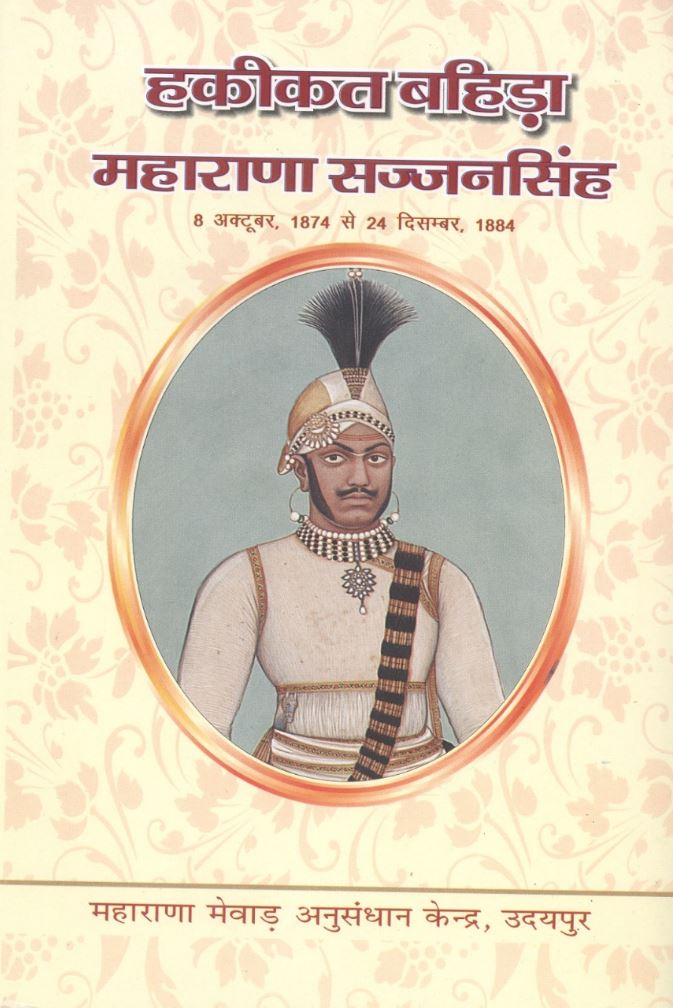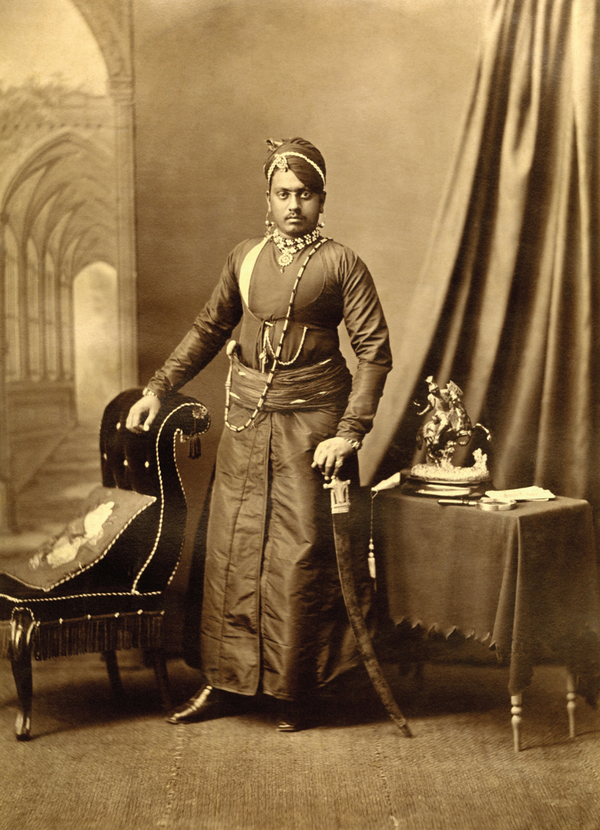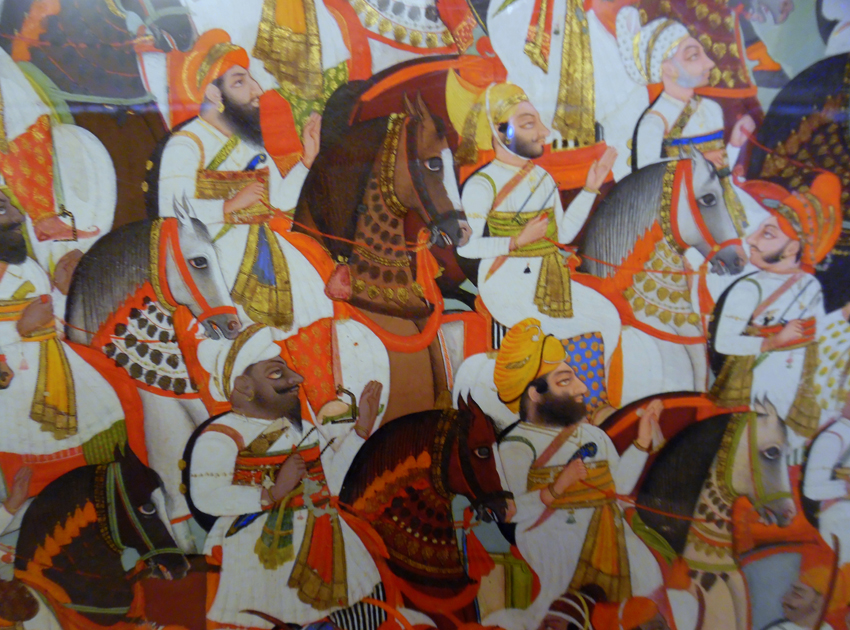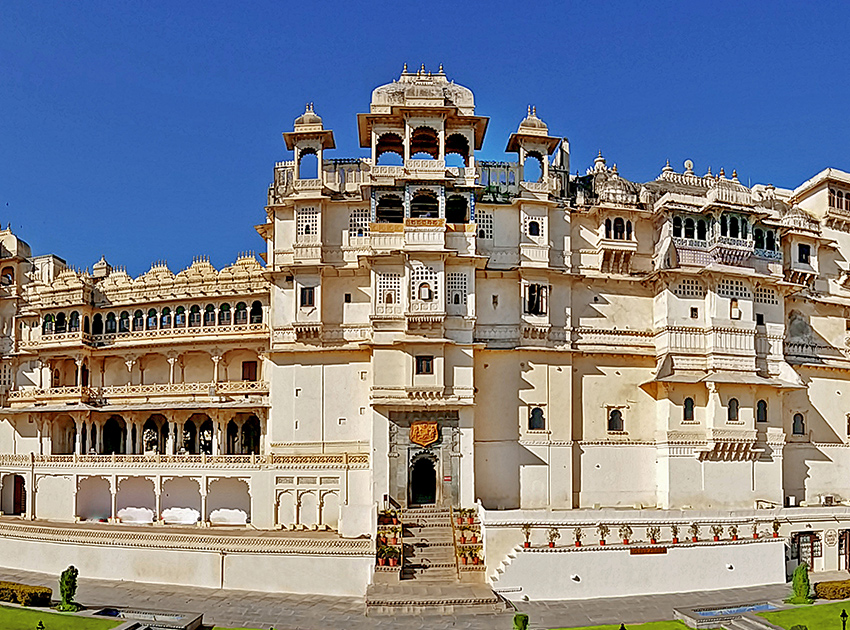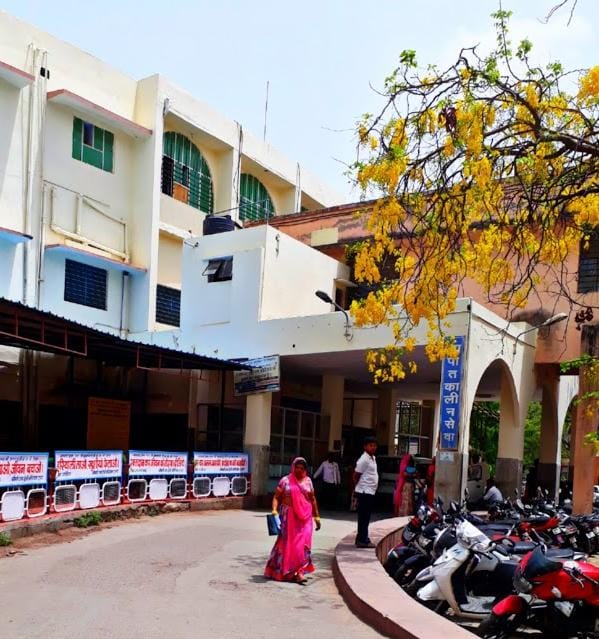
Contributions of Maharanas for Medical Services and during Epidemics in Mewar state.
Posted by Admin on Wednesday, June 30th, 2021
In the present scenario, Novel Corona virus disease (Covid 19) has been declared a global epidemic by the World Health Organization. The effect of this disease is being seen on the public morality.
If we look back in history, this situation arising out of famines and pandemics are not new, so there is a need today, to learn from the past experiences and to make fruitful efforts. Mewar was faced worst public health crisis like plague, cholera, smallpox and measles. These epidemics and impacts are recorded in history. Maharana Mewar Research Institute established in 1985 under the patronage of Shriji Arvind Singh Mewar of Udaipur, Chairman and Managing Trustee, Maharana of Mewar Charitable Foundation, Udaipur, initiate to observe the measures and services recorded in the past centuries by the Mewar State.
Due to the geographical situation of Rajputana (present day Rajasthan) the famine and epidemics were a natural problem. The first effort of the State was not allowed starvation and disease to flourish an emergency. The first recorded effort in the text, Raj Vilas by Maan Kavi and Colonel Tod’s account, Mewar state were applied such type of preventive measures in 1661 CE. Maharana Raj Singh (r. 1652-1680 CE) started the construction work of Rajasamudra (Rajsamand) for relief due to famine.
During the reign of Maharana Bheem Singh (r. 1778-1828 CE) epidemics were spread all over Mewar, the Maharana started the relief work at the private expense to protect people’s life and health. After the famine and the atmospheric disaster in 1828 CE, Mewar was not able to effectively prevent disasters caused due to health crisis.
In Mewar the oldest medical institutions were the regimental hospitals of the Mewar Bhil Corps at Kherwara and Kotra. These institutions established in 1841 CE during the reign of Maharana Sardar Singh (r.1838 – 1842 CE) when the corps was raised.
During the reign of Maharana Shambhu Singh (r.1861–1874 CE), entire Rajputana faced another disaster of famine in 1869 CE. After the famine entire Rajputana was affected by epidemics like cholera, plague and deprivation of food. In this health crisis 20 percent population lost their lives in Rajputana. Mewar State also lost a large number of population. At this time, the nobles of Mewar requested the Maharana Shambhu Singh to leave Udaipur but Maharana refused this request and decided to live in Mewar to service community. The State Government learnt from past experiences and prioritized relief operations in Mewar under the leadership of Maharana Shambhu Singh. A large number of people from various areas of Rajputana took shelter in Mewar. The citizens of Mewar showed kindness and helped the refugees. They tried to provide all possible amenities like medicine, food and shelter. Maharana of Mewar gave order to Pradhan (Prime Minister of Mewar) Kesari Singh Kothari for food distribution and grains in needy population, who worked daily for their livelihood. Mewar Government also worked for health improvement in those areas where affected people and refugees were inhabited. The State exempted all the taxes and duties. After the prevention of the epidemic, Maharana of Mewar gave the grant of Rs. 11000 for resettlement of the refugees coming from different areas of Rajputana. The first State Dispensary appears to have been opened at the Udaipur in 1862 CE by Maharana Shambhu Singh and he provided accommodation for patients in 1864 CE. In 1869-70 CE another small hospital was opened at Kherwara for the public. This hospital was maintained from a monthly grant from the Maharana.
In 1878-1879 CE entire Rajputana faced a critical situation due to heavy rainfall and then subsequent famine and epidemics. But due to the effective efforts of Maharana Sajjan Singh (r. 1874-1884 CE) the people in Mewar remained safe compared to the previous disasters. However, 50 percent of the animal wealth was lost in Mewar. During the reign of Maharana Sajjan Singh, the United Free Church of Scotland Mission established a Shepherd Mission Hospital in 1877 CE. Shepherd Mission Hospital, presently Dhanmandi Hospital, was supported by Reverend Dr. Shephard at Udaipur City. In the course of the next decade the Sajjan Hospital, presently Kunwarpada Dispensary, was established. Walter Female Hospital was started in recognition of then the Political Agent of Mewar Colonel Walter were established at Udaipur. Walter Female Hospital, presently Naturopathy Hospital, was constructed in 1888 near Ghas Ghar with initial strength of 40 beds. He also started small pox vaccination in Udaipur. Thus in 1881, there were 7 medical institutions in the State including the hospital attached to the Jail for the treatment of sick prisoners and jail servants.
Due to the past disasters experiences, Maharana Fateh Singh (r. 1884 – 1930 CE) introduced development policy and started construction work. These policies were prepared for the public in further disasters along with the development of Mewar. In 1890-1892, due to the spread of cholera, smallpox in the neighboring states of Mewar people took shelter in Mewar. Maharana of Mewar established Emergency Relief Fund to provide necessary assistance and support to public. Vaidhya-Hakims (A man who practice indigenous Medicare) were appointed from all areas of Mewar for medical facilities and arrangements. In 1896 CE, around 620 deaths recorded in Udaipur from cholera. In 1899 CE, after famine cholera and smallpox epidemics began to spread. The Mewar government adopted the process of ‘Isolation’. Medical arrangements were ensured by keeping infected patients away from the city and the sanitation system was started smoothly in Udaipur city. Maharana Fateh Singh replaced Sajjan Hospital, due to its small building and narrow road, by the Lansdowne Hospital in recognition of Viceroy of India Lord Lansdowne in July 1894 CE inside the Hathi Pol area of Udaipur. Lansdowne Hospital, presently Ayurveda Hospital at Harven Ji Ka Khurra, Hathi Pol, was the main Hospital of the city with provision of 60 beds. The State possessed 20 Hospitals and the Dispensaries until 1901 CE, 13 were maintained solely by the Maharana, 3 by the Government of India, 2 partly by the Government and private subscription, 1 by the Mission and 1 by the Gosainji Maharaj of Nathdwara. On 8th November 1885 Viceroy of India Lord Dufferin visited Udaipur and the new building of Walter Female Hospital was unveiled by Lady Dufferin. A Lunatic Asylum, outside Brahma Pol, was constructed by Maharana Fateh Singh in 1899 – 1900.
Maharana Bhupal Singh (r. 1930 – 1955 CE) gave the grant to maintain the District Dispensaries and Aushdhalayas. The Earl of Willingdon, Viceroy of India (1931 to 1936 CE) inaugurated the Willingdon Hospital, outside Hathi Pol, during his visit to Udaipur on 6th December 1932. After independence this Hospital was renamed as Maharana Bhupal Government Hospital. During the year 1942 there were 5 Hospitals, 26 Dispensaries, 2 anti-rabic centres and 1 lunatic asylum in Mewar State. The Government of Mewar decide to start a separate TB Hospital in 1943-43 and the old military barracks were converted into a hospital of 25 beds.
In 1961, Rabindra Nath Tagore Medical College was established by the Government of Rajasthan, in a building donated by Maharana Bhagwat Singh Mewar (r. 1955 – 1984 CE). The administrative block is housed in another historic building; Salumber Haveli. The land for the Haveli was granted by the Maharana of Mewar to Salumber Rao Saheb and after the independence in 1961 it was acquired by the Government of Rajasthan for RNT Medical College.
Maharana Bhupal Singh also established a Charitable Dispensary inside the Palace in 1945, which is still functioning as an integral part of Maharana of Mewar Charitable Foundation (MMCF). MMCF operates this Charitable Dispensary all the year round in The City Palace under the patronage of the present Chairman and Managing Trustee, Shriji Arvind Singh Mewar of Udaipur. It aims to provide free medical advice and medicines to the needy who are unable to pay for medical treatment. Treatments can range from assistance to the aged to monetary reimbursement to social workers who distribute medicines to needy and specially abled people. Medical Aid is an important activity of the MMCF. Citizens of the region can also apply to it for medical benefits and assistance. As appeals made for medical assistance are overwhelming, the Trust aims to disseminate funds fairly and without prejudice exercising judiciousness and compassion in the distribution of monies. More than 12,000 patients benefit each year from the dispensary which is manned by a team of medical professionals. The Staff’s yearly medical checkup is also organised by the Foundation.
During the last centuries, the princely state of Mewar organized several relief works such as medical isolation; relief material availability and cleanliness campaign etc. which are equally relevant in today’s scenario. The role of State and public both were important in such type of health crisis.
Source: Maharana of Mewar Charitable Foundation, The City Palace, Udaipur 313001

